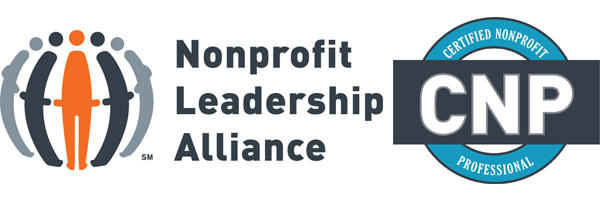Certification competencies
The identified skills and knowledge needed to meet the work challenges of the student's chosen career field.
The Nonprofit Leadership Alliance's competency requirements for completing the national certificate and earning the CNP credential serve as a framework for a college curriculum that meets the needs of nonprofit organizations. Upon completion of the certificate's core competencies and graduation with a bachelor's degree, students possess the skills, knowledge and experience they need for employment as a Certified Nonprofit Professional.
The Nonprofit Leadership Alliance's national certificate is based upon the following 10 competencies:
- Communication, Marketing and Public Relations: Highlights knowledge, attitudes and activities that nonprofit organizations use to understand, inform and influence their various constituencies.
- Cultural Competency and Diversity: Highlights the development of cultural competency preparation for professional practice in culturally diverse settings.
- Financial Resource Development and Management: Highlights financial resource acquisition, budgeting, financial management, control and transparency in nonprofit organizations.
- Foundations and Management of the Nonprofit Sector: Highlights the history, contributions, and unique characteristics of the nonprofit sector and its management.
- Governance, Leadership and Advocacy: Highlights the stewardship and advocacy roles, responsibilities and leadership of the board of directors, staff and volunteers in the development of policies, procedures, and processes by which nonprofits operate and are held accountable.
- Legal and Ethical Decision Making: Highlights basic laws, regulations and professional standards that govern nonprofit sector operations, including a basic knowledge of risk and crisis management, ethics, and decision-making.
- Personal and Professional Development: Highlights the nature of employment in the nonprofit sector, from researching career opportunities, applying and interview for a job, to continuing professional development.
- Program Development: Highlights program design, implementation, and evaluation strategies applicable to all nonprofits (youth services, arts, environment, health, recreation, social services, advocacy, etc.).
- Volunteer and Human Resource Management: Highlights the knowledge, skills, and techniques for managing volunteer and paid staff.
- Future of the Nonprofit Sector: Highlights the dynamic nature of the nonprofit sector, the importance of continuous improvement, emerging trends and innovations, and the critical role research plays in shaping best practices.
These competencies are based on comments from 2011 Competency Revalidation Survey and stakeholder feedback.


